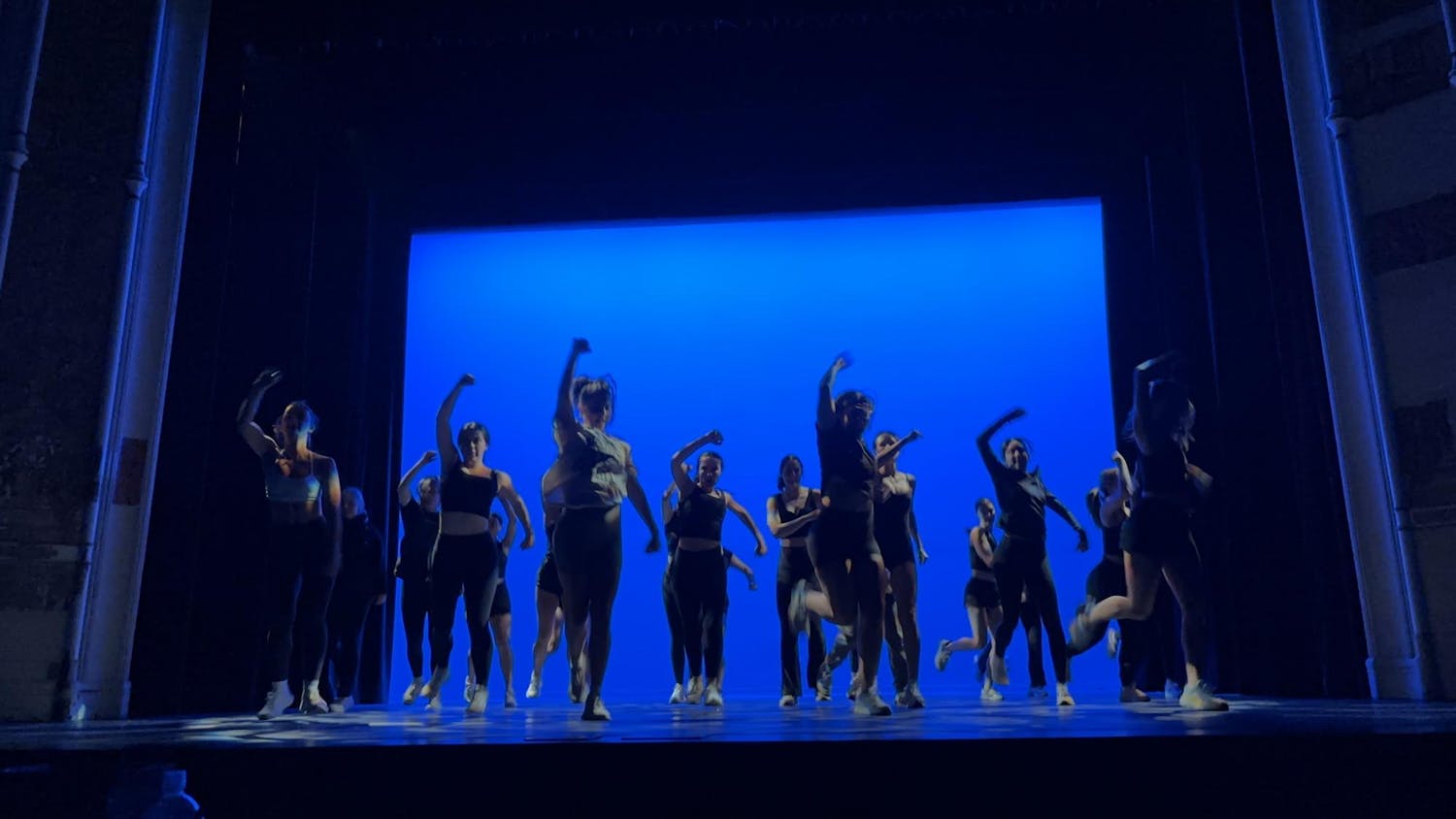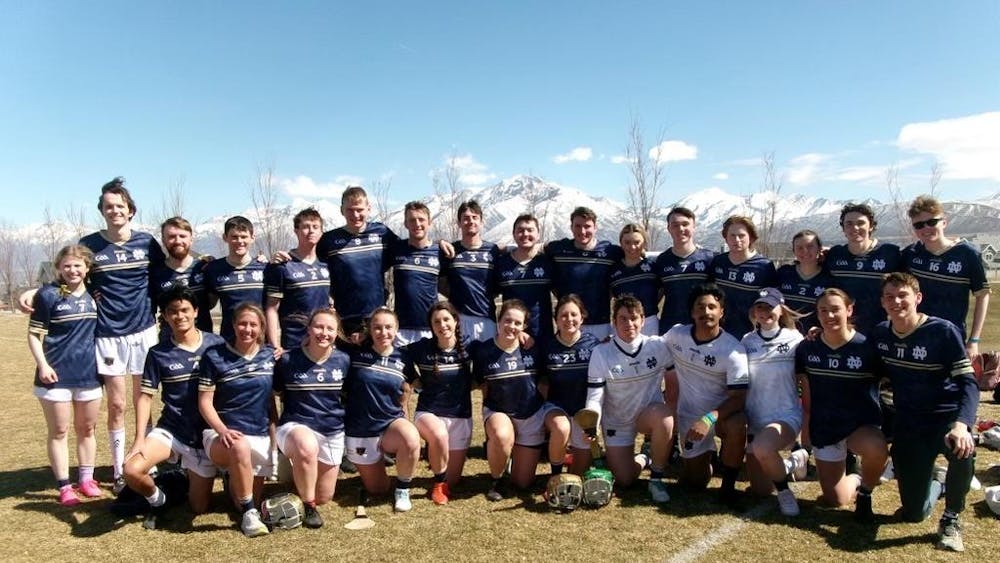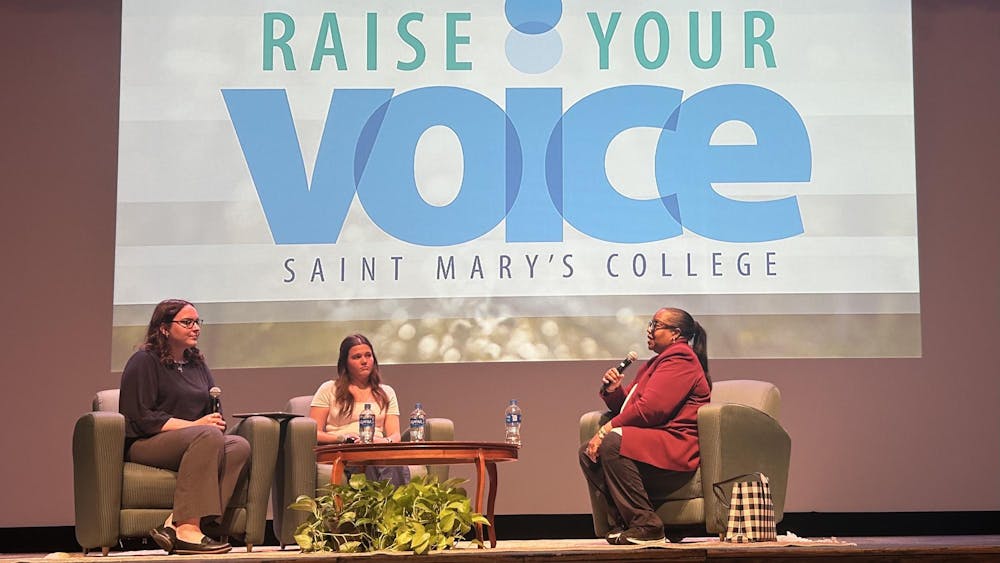The men and women in Notre Dame's ROTC battalions will serve more than clients and bosses in their future work. They will be serving their country.

Notre Dame has three ROTC battalions: Army, Navy and Air Force. Each senior is commissioned upon graduation and enters their branch of the military as an officer.
Mary Coyne, one of the 32 seniors graduating from the Naval ROTC battalion, said she are excited to begin training for a specialized career path in the U.S. Navy.
Coyne said she is one of the first girls ever chosen to enter the submarine branch and will begin training in October.
"I think this is one of the first years that they have ever looked at ROTC girls [for submarines]," Coyne said. "I know it's going to be really hard, and I know that there are going to be people who don't think I should even be there because I'm a girl ... but the only thing that I can do is to prove that I can do my job, respectfully."
Senior Kevin Brainard, a graduate of the Naval ROTC program, said he is preparing for a future as a pilot in the Marine Corps.
"I'm a specialized case, because I'm going in with a flight contract," Brainard said. "I know I'm going to fly something, but I don't know exactly what yet."

Brainard, a psychology major, will move to Quantico, Va., immediately after graduation to enter The Basic School. The Basic School provides newly commissioned officers with the professional knowledge and leadership education to prepare them for duty as a company grade officer, according to the school's website.
"In my case, I'm going to be a pilot in the Marine Corps, but should I for whatever reason find myself commanding a ground unit, I'm going to be able to do that as well, thanks to training at [The Basic School]," Brainard said.
Seniors Jane McNaughton and Trevor Waliszewski are two of the 17 cadets in Notre Dame's Army ROTC battalion who will be commissioned as officers after graduation.
McNaughton, who will graduate from Saint Mary's with a degree in social work, said she eventually will enter the military intelligence branch of the Navy, but will first serve a three-year stint with the Navy's Chemical Corps.
"Military intelligence loans me out, you could say, to the Chemical Corps," she said. "There, I will be responsible for chemical weapons, nuclear and biological weapons ... For the first three years, I will be working in that branch, and then I will go back to being a military intelligence officer."
The chance to have variety in her assigned duties makes her chosen branch all the more attractive, McNaughton said.
"With the Chemical Corps, there is so much variety in what officers can be assigned to do," she said. "I can do a whole variety of things: a battalion staff position, which means working with planning and training operations for a few companies, or a chemical company position, which would mean that I would be assigned to my own platoon."
Waliszewski said he is pursuing a career as a Judge Advocacy General (JAG) lawyer.
"I'm on a pretty unique track," Waliszewski said. "I'm getting an educational delay and then heading off to law school, where I will commission as a JAG lawyer."
Waliszewski said he will confront a broad range of legal issues with the military.
"It's a legal firm, plus all of the military benefits," Wasliszewski said. "It's a really exciting and challenging career, because you are not being pigeonholed to one specialty within the law, and every year you're probably going to have a new assignment and be challenged in a new way."
Seniors Scott Lyle and Shayler Piersen will graduate with 18 Air Force ROTC cadets who will be commissioned after graduation.
Lyle, who will graduate with a degree in aerospace engineering, said he is headed to Loughlin Air Force Base in Texas at the beginning of 2013 but will work a temporary job until then.
"On Jan. 11 [2013], I will activate, pack up everything, go to Loughlin Air Force Base in Texas for several months and then eventually go to training in Pueblo, Colo. for a few weeks of training," Lyle said. "Then I'll go back to Loughlin to start undergraduate pilot training."
Piersen, a political science and history major, said he will enter the military intelligence branch of the Air Force upon graduation. He said he will begin seven months of training challenges, culminating in a series of examinations spanning three days.
"A lot of intelligence training is learning to handle all of these different varieties of information ⎯ learning how to analyze types of pictures, intercept communications and work with satellites," he said.
Piersen said Notre Dame prepares its ROTC cadets particularly well for careers in the military, because the University inspires a deeper understanding of the same sense of service that inspired the cadets to enlist.
"Notre Dame's focus is on its mission in service, and that's why we enter the military ⎯ we want to serve our country," Piersen said. "Notre Dame instills that higher understanding of service and by facilitating that understanding of why we are serving our country, we are allowed to do that in a much better way."












